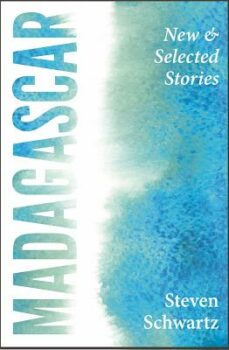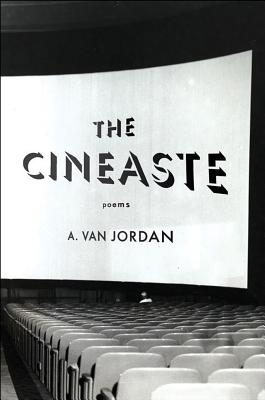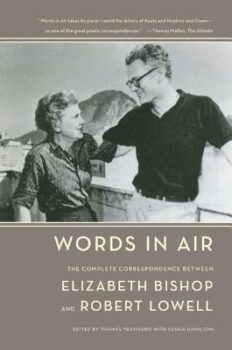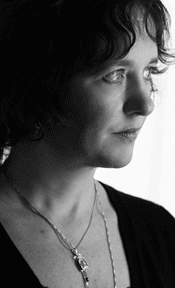 “Any writer who wants to describe a life in full must attend not only to what we do, who we know, how we feel, but also to how time feels as we do it, to the way that our very selves gather and alter and recede over minutes and hours and years,” wrote Stephen Burt in his 2012 review of Laura Kasischke’s National Book Critics Circle Award-winning Space, In Chains. “…Kasischke is one of a very few poets whose style now seems equal to that task.” With a prolific eight books of poems and eight novels behind her, it might seem that Kasischke has been tracking that sense of a discontinuous self in real time.
“Any writer who wants to describe a life in full must attend not only to what we do, who we know, how we feel, but also to how time feels as we do it, to the way that our very selves gather and alter and recede over minutes and hours and years,” wrote Stephen Burt in his 2012 review of Laura Kasischke’s National Book Critics Circle Award-winning Space, In Chains. “…Kasischke is one of a very few poets whose style now seems equal to that task.” With a prolific eight books of poems and eight novels behind her, it might seem that Kasischke has been tracking that sense of a discontinuous self in real time.
Space, In Chains was my first encounter with Laura’s work, and I was at first surprised to hear that she wrote fiction. When poets write novels, it’s tempting to assume they’re trying to get free of something in poetry—its coyness, its counting. But after reading The Life Before Her Eyes, it was clear to me that for Laura, far from being escapes from one another, poetry and fiction accomplish different, equally necessary ends. The stories in her first collection, If a Stranger Approaches You, are unsettling and sometimes surreal accounts of human curiosity, trust, and concealment.
Laura Kasischke is the Allan Seager Collegiate Professor of English Language and Literature at the University of Michigan. Two of her novels, The Life Before Her Eyes and Suspicious River, have been made into films, and her poetry has received the Rilke Prize and the Beatrice Hawley Award, among numerous others. This week, Sarabande Books releases If a Stranger Approaches You. In January, she spoke with me on the phone about moving between poetry and fiction, the different impulses behind writing different genres, and her advice that “everyone should write novels.”
Interview
Leah Falk: You’ve written an astonishing number of books, both poetry and fiction. What drew you to short stories this time around?
Laura Kasischke: I’d always written stories now and then; it just wasn’t my primary inclination. But I had a number of stories, so I thought I’d look at them and see if any of them could work together in a collection.
What was the process of going through the stories like?
I had a lot of help from the editor at Sarabande. I took all the ones that I could stand to look at anymore, that I thought were worthwhile at all, and I put them together and she and I whittled it down. I wanted to make it small—those are the kind of short story collections that appeal to me anyway, the kind of slender, poetry-like collections.
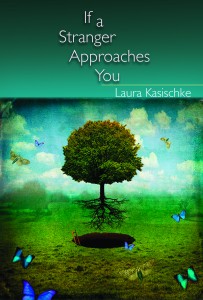 Are there recent collections that were models for you?
Are there recent collections that were models for you?
One of the ones that made me think I could put it together was the story collection, translated from the Russian, There Once Lived a Woman Who Tried to Kill Her Neighbor’s Baby, by Ludmilla Petrushevskaya. And Palm-of-the-Hand Stories, by Yasunari Kawabata. I’m also a great admirer of Alice Munro, and my friend Antonya Nelson is one of my favorite short story writers. But I don’t write that kind of story; I didn’t use them as models. I guess I have my own little thing that’s halfway in between novels and poems.
I wanted to ask you about that—a lot of the stories here remind me of your poems, in that there’s sometimes a thought or small action that seems to betray someone, along with a sharp sense of irony. Do you think of the stories as expansions of poems you might write, or are they separate?
Well, they’re pretty separate. I would say that the stories have more in common with my poems than they do with my novels, with regards to the process of writing them. When I write poetry it’s very much a matter of discovering what I’m thinking about in the process of writing. The poem is a vehicle for figuring that out, and then once I’ve figured it out, it’s just revising and shaping the material. But with the novels it’s so much more about plot, and living with ideas and characters for a long period of time. You can’t really be in some state of discovery while you’re writing a novel for four years. You’re always waking up in the morning and planning ahead—that sort of thing. So the stories are more like the poems in their process. I started with an idea instead of a plan, or with an impulse, and writing the stories was a way of following my own train of thought.
That makes a lot of sense, reading them side-by-side.
The characters in these stories have names, but it almost seemed that giving them names was a way of making fun of them for trying to exist as normal people, because they all have these things that make their lives not normal, almost harrowing. Do you think about the act of naming a character as significant?
Well, I do tend toward the allegorical. The stories: the impulse of them to me was not realism. You know, I tried not to be completely heavy-handed with them, but I gave myself some latitude to be symbolic and allegorical. I didn’t necessarily think of it so much as making fun of them, as that they were archetypes, or sort of an outgrowth of the tale that they were in, rather than human beings I was trying to create with their own agency—which I would do in a novel. Of course you can tell I’m basically a poet who makes a foray into fiction once in a while!
Do you think gender plays into that, the character’s ability to be this allegorical or symbolic figure? A lot of the characters in your fiction are women dealing with what’s expected of them in suburban life, for example.
It’s hard for me to even see that stuff. I think it makes sense to me that I, of course, am thinking all the time about gender roles and my own role and my experience. But whether that’s in the stories or not, I don’t know, I can never tell. Other people who read my work tell me sometimes about my obsessions, but it’s news to me! I look and go, Oh, yeah, I am obsessed with that, aren’t I? But I don’t ever set out with anything quite that conscious, I guess.
I want to ask you about the question of irony in these stories, especially the last story, “If a Stranger Approaches You,” and the first, “Mona.” Both have what are not quite “twists” in the O. Henry sense, but these places where there might follow a classic ironic resolve. I wondered if you’d thought about the way you wanted irony to figure.
Again, now that you mention it, I am a fan of dramatic irony. I don’t really like making fun of people, and I don’t like finding myself in ironic situations, which I do quite often! But I do like dramatic irony. I think in some ways it’s a bit more Freudian irony with me. People acting out psychological ironies where really what they think they’re doing is the exact opposite of what they’re doing, or their impulses are unknown to them. They believe that they are generous, kind people, but often they’re acting out of a selfish motive. I think sometimes people go looking for things, and I like this in literature—people going looking for things that are right in front of their faces, like Oedipus; misinterpreting other people in a kind of willful way, like King Lear.
Earlier, you also mentioned fairy tales—are there particular fairy tales that you didn’t necessarily use as models, but love and know have influenced you in some way?
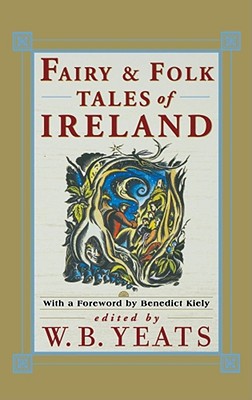 Well, one of the big revelations of my life was reading Yeats’s Fairy and Folk Tales of Ireland, and this poet’s hand in the retelling of tales that I guess were popular folk tales, although they hadn’t made it over here. He adheres to all the conventions of the tale, but to me, with an eye for the symbol and the image in the way of some of the best stories. So I really liked those. But, of course, it’s different to do that than make up your own, assuming he wasn’t making up his own. And to be me instead of Yeats.
Well, one of the big revelations of my life was reading Yeats’s Fairy and Folk Tales of Ireland, and this poet’s hand in the retelling of tales that I guess were popular folk tales, although they hadn’t made it over here. He adheres to all the conventions of the tale, but to me, with an eye for the symbol and the image in the way of some of the best stories. So I really liked those. But, of course, it’s different to do that than make up your own, assuming he wasn’t making up his own. And to be me instead of Yeats.
But even before that, I think the whole idea of fairy tales and mythology and folk tales—popular Scottish ballads and that sort of thing—has always retained its magic for me since childhood, along with Biblical stuff that I grew up with.
I wonder if when someone like Yeats rewrites a popular myth or fairy tale, he has some sort of present day reality in mind that goes into the rewriting. Did you think about that with these stories—did you use images or events from daily life that then turn into these magical elements?
Oh, definitely! Heightened stuff; but the title story started when I was in an airport, while they kept announcing over and over again, If a stranger approaches you, contact personnel, and thinking, would someone approach me, would I even consider carrying a foreign object onto a plane? And the answer to that question. So, yeah, everything has some sort of origin in real life—mine or someone close to me.
Is there anything more you want to say about moving between poetry and fiction? That’s something I’m often interested in, although you’ve been writing both for a long time. But I always wonder: if someone identifies mostly as a poet, what impulse drives them toward the other?
For me, I started out just writing poetry and every once in a while I’d feel inspired to write a story. But my focus was always poetry until I came up with an idea for a novel. And actually it wasn’t my first novel, it’s a novel that’s under the bed, and is related to the first novel I published, but was never publishable—or even really finishable—it’s such a mess. But after that, it’s almost a religion; I want to say to everyone, “You should write novels. It’s so fun!” And it’s so unlike poetry. Writing poetry is hard! You have to be inspired, you have to have the whole day to yourself just in case, you can’t be interrupted; there’s so much that goes into writing a poem.
And of course I love writing poetry. But I just love having a novel going all the time, because it’s this repository for all kinds of stuff. You don’t want a poem like that, or a poet like that. You don’t want someone cataloguing or writing pages and pages about what it’s like to wash dishes. But you can get away with that in a novel. And it just gives you something to think about all the time. I’ve had so much fun—when I’m writing a novel, I have this outlet for everything. That’s my way of saying: “Leah, you should write a novel.” I’m sure you’ve got one in you. You’ll be surprised how much easier it is. I don’t find stories easy at all. I’m really an admirer of people who can write short stories. I feel sheepish and wanted this collection to be very short, because I feel like you’re so exposed in the short story. But in a novel—
—there’s a lot more wiggle room.
So much room! You write a bad page and the reader turns to the next one, and hopefully forgets about it or forgives you. Not in a five-page short story, or even a twenty-page short story. So you know, these stories were written over a long period of time. But it’s not the easier form, I don’t think. Although poetry is harder. Writing poetry is harder than anything.
I agree with you! We’ll see how the fiction writers at Fiction Writers Review respond to that statement.
Oh, they won’t like it. That’s okay.
Further Links and Resources
- Buy a copy of If a Stranger Approaches You at Sarabande Books.
- Read Stephen Burt’s review of Kasischke’s novel The Raising and Space, In Chains in the New York Times Book Review.

